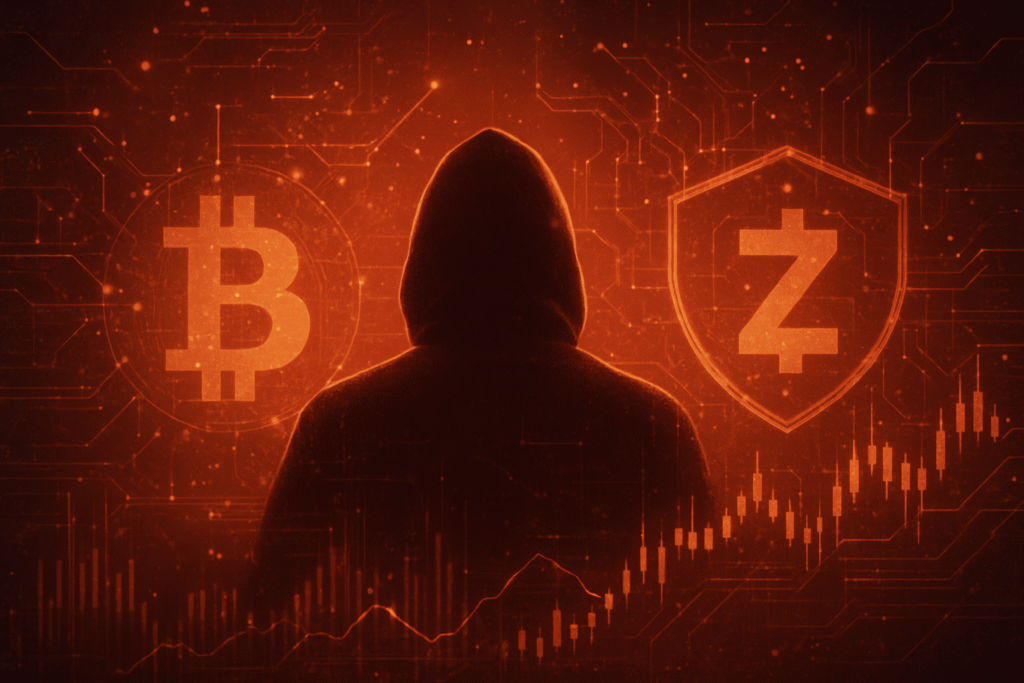
November 10, 2025 – The cryptocurrency world is abuzz with fervent speculation as rumors linking a prominent Zcash (ZEC) developer, Daira-Emma Hopwood, to Bitcoin's enigmatic creator, Satoshi Nakamoto, have ignited an extraordinary rally in Zcash's value. This intense debate, which gained significant traction in early November 2025, has seen the privacy-focused cryptocurrency surge by over 1,700% since early September, pushing its price to levels not seen in seven years. The immediate market reaction has been one of explosive growth, followed by a recent correction, as the crypto community grapples with the profound implications of a potential Satoshi reveal and a renewed focus on digital privacy.
This unfolding narrative is more than just a fleeting rumor; it strikes at the very heart of Bitcoin's decentralized ethos and reignites a fundamental debate about privacy in a rapidly evolving regulatory landscape. The possibility that a figure associated with a leading privacy coin could be the architect of the world's first cryptocurrency has sent shockwaves through the ecosystem, prompting a critical re-evaluation of Bitcoin's origins, the role of privacy coins, and the future direction of Web3. The timing also coincides with increasing regulatory scrutiny on privacy-enhancing technologies, making the Zcash surge a powerful statement from privacy advocates.
Market Impact and Price Action
The rumors surrounding Daira-Emma Hopwood and Satoshi Nakamoto have had a dramatic and immediate impact on Zcash's market performance. Since early September 2025, ZEC has experienced an "insane run," climbing from approximately $40 to an astonishing high of roughly $750 by early November. This represents a staggering surge of over 1,700% in just two months, or a 750% increase since August, pushing Zcash to its highest price point since 2018. The trading volume for ZEC has similarly exploded, indicating massive investor interest and liquidity flowing into the asset.
This meteoric rise was not solely driven by the Satoshi rumors but was significantly amplified by prominent endorsements. Arthur Hayes, co-founder of BitMEX, publicly revealed that Zcash had become the second-largest liquid asset in his family office's portfolio, trailing only Bitcoin (BTC-USD). Such high-profile backing from influential figures undoubtedly added fuel to the rally, attracting both retail and institutional investors seeking to capitalize on the momentum.
However, the rapid ascent was met with an equally sharp correction. On November 8, 2025, Zcash experienced a nearly 30% price drop, falling from approximately $720 to $513. This correction coincided with heightened social media controversy and increased scrutiny of the developer identity rumors, suggesting that some of the speculative froth began to dissipate. Despite this pullback, ZEC still maintains significant gains, trading well above its pre-surge levels, indicating that a substantial portion of the newfound interest and capital remains invested in the asset. The volatility underscores the speculative nature of such rumor-driven rallies, yet the underlying narrative around privacy and potential historical connections continues to provide a strong support level.
Community and Ecosystem Response
The crypto community's response to the Zcash developer rumors has been a mix of excitement, skepticism, and deep ideological discussion. Social media platforms, particularly X (formerly Twitter) and Reddit, have been ablaze with discussions, memes, and detailed analyses attempting to connect the dots between Hopwood and Nakamoto. Viral social media posts, often featuring old interview clips of Hopwood and academic references, served as the initial catalyst, quickly spreading the speculation.
Crypto influencers and thought leaders have weighed in, with some, like Solana (SOL-USD) contributor Mert from Helius and investor Naval Ravikant, lending credence to a broader narrative: that Zcash embodies Satoshi Nakamoto's "true vision" for Bitcoin. They argue that Satoshi, as early as 2010, expressed a desire for Bitcoin to incorporate zero-knowledge proofs for enhanced privacy—a core feature of Zcash. This perspective frames Zcash not just as a privacy coin, but as a potential "spiritual successor" to Bitcoin, addressing its inherent transparency limitations. This sentiment has resonated deeply within segments of the community that prioritize privacy and the original cypherpunk ethos of cryptocurrency.
Beyond direct price action, the debate has not directly impacted specific DeFi protocols, NFT projects, or Web3 applications in terms of technical integration, but it has undoubtedly shifted the collective consciousness towards privacy-preserving technologies. The renewed interest in Zcash highlights a "cultural shift" within the crypto community, indicating a growing demand for alternatives to transparent blockchains amidst increasing surveillance and regulatory pressures globally.
What's Next for Crypto
The Zcash developer rumors and subsequent price surge carry significant short and long-term implications for the crypto market. In the short term, continued volatility for ZEC is likely as the community attempts to verify or debunk the Satoshi connection. Any new piece of information, whether a cryptic post or a statement from Zcash (ZEC-USD) developers, could trigger further price swings. For other privacy coins, this event could serve as a catalyst for renewed interest and investment, potentially leading to a broader "privacy coin season" as investors seek alternatives that align with the renewed emphasis on anonymity.
In the long term, the debate reinforces the critical importance of Satoshi Nakamoto's anonymity to Bitcoin's (BTC-USD) decentralized and trustless nature. A definitive revelation of Satoshi's identity, regardless of who it might be, could "shatter the idealized image" of Bitcoin, introducing a central figure where none was intended. This could have profound ideological and potentially market-altering consequences, forcing the community to re-evaluate the very foundations of decentralization.
Potential catalysts to watch include further research into Hopwood's early work and Satoshi's communications, as well as any official statements from the Electric Coin Company (ECC), the creators of Zcash. Investors and projects should strategically consider the implications of enhanced privacy features. As global regulators, particularly in the U.S. and EU, move towards stricter controls on anonymous crypto accounts and potential bans on privacy coins by mid-2027, the Zcash surge highlights a growing tension. Projects developing privacy-enhancing technologies will need to navigate these regulatory hurdles carefully, seeking to balance user privacy with compliance. Possible scenarios range from a complete debunking of the rumors, leading to a ZEC price correction, to a continued slow burn of speculation that keeps privacy at the forefront of crypto discourse.
Bottom Line
The rumors linking a Zcash developer to Satoshi Nakamoto and the subsequent Zcash price surge represent a pivotal moment for the cryptocurrency ecosystem in late 2025. For crypto investors and enthusiasts, the key takeaway is the renewed emphasis on privacy as a core value proposition within the digital asset space. While speculative rallies carry inherent risks, the underlying demand for confidential transactions and censorship resistance is undeniable, especially as regulatory pressures intensify globally.
The long-term significance of this event lies in its ability to force a re-evaluation of what constitutes true decentralization and the role of anonymity in a digital economy. Satoshi's anonymity has been a cornerstone of Bitcoin's strength, and any credible challenge to that anonymity could have lasting repercussions. This debate underscores the ongoing ideological battle between transparency and privacy, a battle that will define the future trajectory of Web3.
Important metrics to monitor include Zcash's price stability post-correction, trading volumes across major exchanges, and any further statements or research emerging from the Zcash community or independent researchers regarding the Satoshi connection. Additionally, keep a close eye on regulatory developments concerning privacy coins in key jurisdictions, as these will heavily influence the operational viability and adoption rates of projects like Zcash. This event serves as a stark reminder that while technology evolves, the foundational principles of cryptocurrency—decentralization, security, and privacy—remain at the heart of its revolutionary potential.
This article is for informational purposes only and does not constitute financial or investment advice. Cryptocurrency investments carry significant risk.




